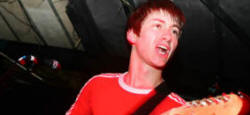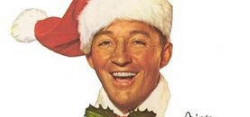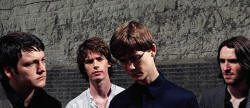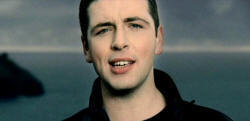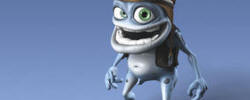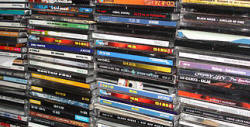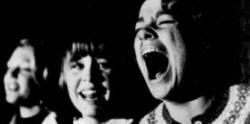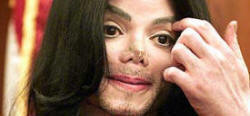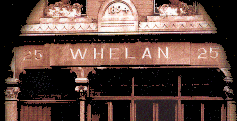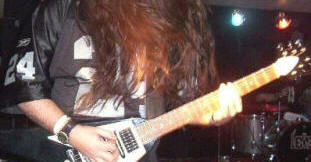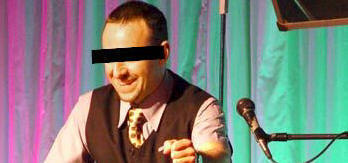This opinion article was first published on CLUAS in October 2004
CLUAS Opinion
Irish Music - a truly influential force?
Aidan kicks off this new section on CLUAS.com with a probing and thought-provoking piece on the degree of influence Irish musicians have had world-wide. Take it away Aidan....
Roddy Doyle said recently in an interview in The Guardian that Ireland
doesn't produce great musicians. Considering that he is currently promoting a
novel centred on Louis Armstrong and American jazz, it's possible that he may
have been quoted out of a very broad context. Nonetheless, he has a valid point.
No Irish acts are globally influential or inspirational in the way that Louis
Armstrong inspired Doyle to devote years of his life and energy to writing his
latest novel. James Joyce (ironically, another recent target of
Doyle's) and
Samuel Beckett have influenced writers and artists of all media in countries and
cultures across the world. However, no Irish singers or groups have similarly
fired the imagination of young bands in other countries the way that British and
American bands have affected you and I here in Ireland. Irish acts aren't
creating scenes, sounds or movements. However much you may loathe catch-all
labels like punk, Britpop, techno or
alt-country, the fact is that these
originally were musical breakthroughs forged in the heat of innovation and
experimentation by pioneers and mavericks. They led; we in Ireland were content
to follow. As in most orally-based cultures, our indigenous musical heritage is
an interpretative tradition of songs and airs handed down through generations.
But that hardly justifies our startling lack of musical innovation in recent
years.
There are certainly world-famous Irish acts, but that's not the same thing as
being influential. U2 are the most famous band on the planet, but a lot of that
is due to Bono's political ubiquity and to the U2 organisation's sharp
media-awareness, as demonstrated to artistic effect on their ZOO TV tour in the
early "90s. Bono may inspire political and social consciousness, and I admire
him greatly for it. But no young band at the moment wants to sound like U2, and
I doubt that future bands will either.
The story of Irish music is strewn with John-the-Baptists, lost geniuses and
what-might-have-beens. Rory Gallagher,
Se? "Riada, Luke Kelly, Phil Lynott" none fulfilled their potential to its maximum or created anything more than
flashing moments of greatness, and all now rely on misty-eyed mythologising for
their reputations. Only Lynott could be said to have made any impact on
international acts - Metallica and The Darkness cite him as an influence. But
since Thin Lizzy's heyday - which was three decades ago, remember - punk, metal,
disco, techno, grunge and a myriad of movements have electrified worldwide
music. Where were we when all of this was going on? Waiting to read about it in
the following week's NME, it seems. We have contributed nothing original,
radical or enduring to popular music. Even our wave of world-conquering boybands
(God bless 'em) had its source in the seminal moment at The Point when Louis
Walsh saw Take That but heard only cash registers. Which was better than hearing
Take That, I suppose.
As for Irish songwriting, Van Morrison, Shane McGowan and even
U2 have certainly
written great songs in their time, but only sporadically. "Q" magazine, in their
infinite wisdom, recently declared "One" to be the greatest song of all time - while it's certainly a very good song, this was a bit over-the-top to say the
least. To put the poll in context, "Independent Women" by Destiny's Child was
eighth, "My Name Is" by Eminem ninth.
The point is that no Irish songwriters have sustained the consistent creative
brilliance of the true elite of Premiership songwriters. Lennon & McCartney,
Bacharach & David, George Gershwin,
Tom Waits, Serge Gainsbourg, Cole Porter,
Joni Mitchell" no Irish songwriter has ever pushed the boundaries of their art
the way that these names have done, none have matched their invention, daring,
depth or individuality. Even Belgium has produced at least one towering figure
of popular music, namely Jacques Brel. No Irish artist past or present comes
anywhere near Brel's level of influence on other equally influential artists
(Scott Walker and David Bowie, to name two), his unique sound and his iconic
status. And Bjork, from Iceland, experiments freely and pushes her creative
vision with each new release, admittedly to varying degrees of success. But at
least she's out there trying new things and not afraid to make a fool of
herself.
Irish songwriting today is crippled by a lack of artistic ambition rooted in a
lazy, self-satisfied conservatism.
Damien Rice, Paddy Casey,
Mundy, Paul Brady,
Jimmy McCarthy, John Spillane, David Kitt,
The Frames,
Christy Moore,
Damien
Dempsey - these are among our most popular acts and they all work off the same
template of unoriginal Dylan-esque acoustic folk-pop, one long Grafton Street of
busker after busker. Similarly, The Thrills slavishly copy their Californian
heroes down to the last guitar jangle. The Frames have just released their new
album "Burn The Maps" to an accompanying chorus of
"this is definitely their
commercial/artistic breakthrough, I promise you". The same was said of their
previous two albums, you might remember. Now it's time to ask whether or not
they are actually good enough to ever break through into wider international
popularity, a bigger prize than just filling the same large home-town venues
over and over again. Bell X-1 have also reached this point and must now brace
themselves for the big jump. And then there's the likes of
Mark Geary, a
talented guy who for some reason feels the need to cover himself by suggesting
in interviews (a recent Sunday Times piece, for instance) that failure is quite
alright for him. What a cop-out.
The best artists are ruthlessly ambitious for success - artistic, commercial and
critical. Irish society is only now, in our new-found prosperity and all its
faults, becoming comfortable with the idea of material reward and earned status.
We should put this new self-confidence and appetite to good use. If the Battle
of Saipan taught us anything, it's that an acceptance of "will-this-do?" mediocrity and one-all draws will never win us the World Cup or anything of
value in life. Irish music has too many Micks and not enough Roys. Can a future
Irish band ever replace The Beatles as the generally-accepted "greatest band
ever". Of course they can. But these Irish acts must be prepared to take the
brave and uncertain steps into creative individuality, emotional toughness and
cut-throat ambition. Great songwriters are leaders, not followers.
![]() Why
not add your voice to the
vibrant discussion this article provoked on the CLUAS discussion board.
Why
not add your voice to the
vibrant discussion this article provoked on the CLUAS discussion board.
Previous CLUAS Opinion pieces...
| Dateline: January 2006 | |
|
|
|
| Dateline: December 2005 | |
|
|
|
|
What Pop Music Can Teach Us About The Spirit Of Christmas... |
Dateline: December 2005 |
|
|
|
| Dateline: December 2005 | |
|
|
|
|
Homosexuality in pop music and the taboos that still surround it... |
Dateline: September 2005 |
|
|
|
| Dateline: June 2005 | |
|
|
|
| Dateline: May 2005 | |
|
|
|
| Dateline: March 2005 | |
|
|
|
| Dateline: February 2005 | |
|
|
|
| Dateline: January 2005 | |
|
|
|
| Dateline: December 2004 | |
|
|
|
| Dateline: November 2004 | |
|
|
|
| Dateline: October 2004 | |
|
|
|
| Dateline: October 2004 | |
|
Roddy Doyle said recently in an interview in The Guardian that Ireland doesn't produce great musicians. Considering that he is currently promoting a novel centred on Louis Armstrong and American jazz, it's possible that he may have been quoted out of a very broad context. Nonetheless, he has a valid point. Read the full article... |
|


